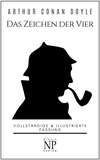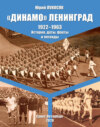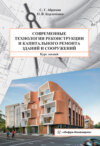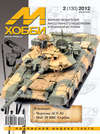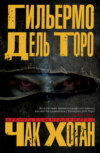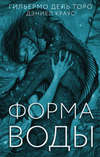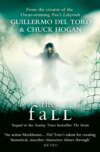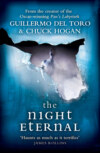Читать книгу: «The Complete Strain Trilogy: The Strain, The Fall, The Night Eternal»

The Strain Trilogy
GUILLERMO DEL TORO and CHUCK HOGAN

Contents
Title Page
The Strain
The Fall
The Night Eternal
About the Authors
Also by the Authors
Copyright
About the Publisher

The Strain
BOOK I
OF The Strain Trilogy
GUILLERMO DEL TORO and CHUCK HOGAN

Dedication
To Lorenza, Mariana, and Marisa …
and
to all the monsters in my nursery:
May you never leave me alone
—GDT
For Lila
—CH
Contents
Cover
Title Page
Dedication
The Legend of Jusef Sardu
The Beginning
N323RG Cockpit Voice Recorder
The Landing
JFK International Control Tower
Now Boarding
Worth Street, Chinatown
Interlude I: Abraham Setrakian
Arrival
Regis Air Maintenance Hangar
Occultation
Approaching Totality
Awakening
Regis Air Maintenance Hangar
Interlude II: The Burning Hole
Movement
Coach
The First Night
Interlude III: Revolt, 1943
Dawn
17th Precinct Headquarters, East Fifty-first Street, Manhattan
The Old Professor
Knickerbocker Loans and Curios, East 118th Street, Spanish Harlem
The Second Night
Exposure
Canary Headquarters, Eleventh Avenue and Twenty-seventh Street
Final Interlude: The Ruins
Replication
Jamaica Hospital Medical Center
Daylight
Bushwick, Brooklyn
Lair
Worth Street, Chinatown
The Clan
Nazareth, Pennsylvania
Epilogue: Kelton Street, Woodside, Queens
Copyright
The Legend of Jusef Sardu
“Once upon a time,” said Abraham Setrakian’s grandmother, “there was a giant.”
Young Abraham’s eyes brightened, and immediately the cabbage borscht in the wooden bowl got tastier, or at least less garlicky. He was a pale boy, underweight and sickly. His grandmother, intent on fattening him, sat across from him while he ate his soup, entertaining him by spinning a yarn.
A bubbeh meiseh, a “grandmother’s story.” A fairy tale. A legend.
“He was the son of a Polish nobleman. And his name was Jusef Sardu. Master Sardu stood taller than any other man. Taller than any roof in the village. He had to bow deeply to enter any door. But his great height, it was a burden. A disease of birth, not a blessing. The young man suffered. His muscles lacked the strength to support his long, heavy bones. At times it was a struggle for him just to walk. He used a cane, a tall stick—taller than you—with a silver handle carved into the shape of a wolf’s head, which was the family crest.”
“Yes, Bubbeh?” said Abraham, between spoonfuls.
“This was his lot in life, and it taught him humility, which is a rare thing indeed for a nobleman to possess. He had so much compassion—for the poor, for the hardworking, for the sick. He was especially dear to the children of the village, and his great, deep pockets—the size of turnip sacks—bulged with trinkets and sweets. He had not much of a childhood himself, matching his father’s height at the age of eight, and surpassing him by a head at age nine. His frailty and his great size were a secret source of shame to his father. But Master Sardu truly was a gentle giant, and much beloved by his people. It was said of him that Master Sardu looked down on everyone, yet looked down on no one.”
She nodded at him, reminding him to take another spoonful. He chewed a boiled red beet, known as a “baby heart” because of its color, its shape, its capillary-like strings. “Yes, Bubbeh?”
“He was also a lover of nature, and had no interest in the brutality of the hunt—but, as a nobleman and a man of rank, at the age of fifteen his father and his uncles prevailed upon him to accompany them on a six-week expedition to Romania.”
“To here, Bubbeh?” said Abraham. “The giant, he came here?”
“To the north country, kaddishel. The dark forests. The Sardu men, they did not come to hunt wild pig or bear or elk. They came to hunt wolf, the family symbol, the arms of the house of Sardu. They were hunting a hunting animal. Sardu family lore said that eating wolf meat gave Sardu men courage and strength, and the young master’s father believed that this might cure his son’s weak muscles.”
“Yes, Bubbeh?”
“Their trek was long and arduous, as well as violently opposed by the weather, and Jusef struggled mightily. He had never before traveled anywhere outside his family’s village, and the looks he received from strangers along the journey shamed him. When they arrived in the dark forest, the woodlands felt alive around him. Packs of animals roamed the woods at night, almost like refugees displaced from their shelters, their dens, nests, and lairs. So many animals that the hunters were unable to sleep at night in their camp. Some wanted to leave, but the elder Sardu’s obsession came before all else. They could hear the wolves, crying in the night, and he wanted one badly for his son, his only son, whose gigantism was a pox upon the Sardu line. He wanted to cleanse the house of Sardu of this curse, to marry off his son, and produce many healthy heirs.
“And so it was that his father, off tracking a wolf, was the first to become separated from the others, just before nightfall on the second evening. The rest waited for him all night, and spread out to search for him after sunrise. And so it was that one of Jusef’s cousins failed to return that evening. And so on, you see.”
“Yes, Bubbeh?”
“Until the only one left was Jusef, the boy giant. That next day he set out, and in an area previously searched, discovered the body of his father, and of all his cousins and uncles, laid out at the entrance to an underground cave. Their skulls had been crushed with great force, but their bodies remained uneaten—killed by a beast of tremendous strength, yet not out of hunger or fear. For what reason, he could not guess—though he did feel himself being watched, perhaps even studied, by some being lurking within that dark cave.
“Master Sardu carried each body away from the cave and buried them deep. Of course, this exertion severely weakened him, taking most of his strength. He was spent, he was farmutshet. And yet, alone and scared and exhausted, he returned to the cave that night, to face what evil revealed itself after dark, to avenge his forebears or die trying. This is known from a diary he kept, discovered in the woods many years later. This was his last entry.”
Abraham’s mouth hung empty and open. “But what happened, Bubbeh?”
“No one truly knows. Back at home, when six weeks stretched to eight, and ten, with no word, the entire hunting party was feared lost. A search party was formed and found nothing. Then, in the eleventh week, one night a carriage with curtained windows arrived at the Sardu estate. It was the young master. He secluded himself inside the castle, inside a wing of empty bedrooms, and was rarely, if ever, seen again. At that time, only rumors followed him back, about what had happened in the Romanian forest. A few who did claim to see Sardu—if indeed any of these accounts could be believed—insisted that he had been cured of his infirmities. Some even whispered that he had returned possessed of great strength, matching his superhuman size. Yet so deep was Sardu’s mourning for his father and his uncles and cousins, that he was never again seen about during work hours, and discharged most of his servants. There was movement about the castle at night—hearth fires could be seen glowing in windows—but over time, the Sardu estate fell into disrepair.
“But at night … some claimed to hear the giant walking about the village. Children, especially, passed the tale of hearing the pick-pick-pick of his walking stick, which Sardu no longer relied upon but used to call them out of their night beds for trinkets and treats. Disbelievers were directed to holes in the soil, some outside bedroom windows, little poke marks as from his wolf-handled stick.”
His bubbeh’s eyes darkened. She glanced at his bowl, seeing that most of the soup was gone.
“Then, Abraham, some peasant children began to disappear. Stories went around of children vanishing from surrounding villages as well. Even from my own village. Yes, Abraham, as a girl your bubbeh grew up just a half-day’s walk from Sardu’s castle. I remember two sisters. Their bodies were found in a clearing of the woods, as white as the snow surrounding them, their open eyes glazed with frost. I myself, one night, heard not too distantly the pick-pick-pick—such a powerful, rhythmic noise—and pulled my blanket fast over my head to block it out, and didn’t sleep again for many days.”
Abraham gulped down the end of the story with the remains of his soup.
“Much of Sardu’s village was eventually abandoned and became an accursed place. The Gypsies, when their carriage train passed through our town, told of strange happenings, of hauntings and apparitions near the castle. Of a giant who prowled the moonlit land like a god of the night. It was they who warned us, ‘Eat and grow strong—or else Sardu will get you.’ Why it is important, Abraham. Ess gezunterhait! Eat and be strong. Scrape that bowl now. Or else—he will come.” She had come back from those few moments of darkness, of remembering. Her eyes came back to their lively selves. “Sardu will come. Pick-pick-pick.”
And finish he did, every last remaining beet string. The bowl was empty and the story was over, but his belly and his mind were full. His eating pleased his bubbeh, and her face was, for him, as clear an expression of love that existed. In these private moments at the rickety family table, they communed, the two of them, sharing food of the heart and the soul.
A decade later, the Setrakian family would be driven from their woodwork shop and their village, though not by Sardu. A German officer was billeted in their home, and the man, softened by his hosts’ utter humanity, having broken bread with them over that same wobbly table, one evening warned them not to follow the next day’s order to assemble at the train station, but to leave their home and their village that very night.
Which they did, the entire extended family together—all eight of them—journeying into the countryside with as much as they could carry. Bubbeh slowed them down. Worse—she knew that she was slowing them down, knew that her presence placed the entire family at risk, and cursed herself and her old, tired legs. The rest of the family eventually went on ahead, all except for Abraham—now a strong young man and full of promise, a master carver at such a young age, a scholar of the Talmud, with a special interest in the Zohar, the secrets of Jewish mysticism—who stayed behind, at her side. When word reached them that the others had been arrested at the next town, and had to board a train for Poland, his bubbeh, wracked with guilt, insisted that, for Abraham’s sake, she be allowed to turn herself in.
“Run, Abraham. Run from the Nazi. As from Sardu. Escape.”
But he would not have it. He would not be separated from her.
In the morning he found her on the floor of the room they had shared—in the house of a sympathetic farmer—having fallen off in the night, her lips charcoal black and peeling and her throat black through her neck, dead from the animal poison she had ingested. With his host family’s gracious permission, Abraham Setrakian buried her beneath a flowering silver birch. Patiently, he carved her a beautiful wooden marker, full of flowers and birds and all the things that had made her happiest. And he cried and cried for her—and then run he did.
He ran hard from the Nazis, hearing a pick-pick-pick all the time at his back …
And evil followed closely behind.
THE BEGINNING
N323RG Cockpit Voice Recorder
Excerpts, NTSB transcription, Flight 753, Berlin (TXL) to New York (JFK), 9/24/10:
2049:31 [Public-address microphone is switched ON.]
CAPT. PETER J. MOLDES: “Ah, folks, this is Captain Moldes up in the flight deck. We should be touching down on the ground in a few minutes for an on-time arrival. Just wanted to take a moment and let you know we certainly ’preciate you choosing Regis Airlines, and that, on behalf of First Officer Nash and myself and your cabin crew, hope you come back and travel with us again real soon …”
2049:44 [Public-address microphone is switched OFF.]
CAPT. PETER J. MOLDES: “… so we can all keep our jobs.” [cockpit laughter]
2050:01 Air-traffic control New York (JFK): “Regis 7-5-3 heavy, approaching left, heading 1-0-0. Clear to land on 13R.”
CAPT. PETER J. MOLDES: “Regis 7-5-3 heavy, approaching left, 1-0-0, landing on runway 13R, we have it.”
2050:15 [Public-address microphone is switched ON.]
CAPT. PETER J. MOLDES: “Flight attendants, prepare for landing.”
2050:18 [Public-address microphone is switched OFF.]
FIRST OFFICER RONALD W. NASH IV: “Landing gear clear.”
CAPT. PETER J. MOLDES: “Always nice coming home …”
2050:41 [Banging noise. Static. High-pitched noise.]
END OF TRANSMISSION
THE LANDING
JFK International Control Tower
The dish, they called it. Glowing green monochrome (JFK had been waiting for new color screens for more than two years now), like a bowl of pea soup supplemented with clusters of alphabet letters tagged to coded blips. Each blip represented hundreds of human lives, or, in the old nautical parlance that endured in air travel to this day, souls.
Hundreds of souls.
Perhaps that was why all the other air-traffic controllers called Jimmy Mendes “Jimmy the Bishop.” The Bishop was the only ATC who spent his entire eight-hour shift standing rather than sitting, wielding a number 2 pencil in his hand and pacing back and forth, talking commercial jets into New York from the busy tower cab 321 feet above John F. Kennedy International Airport like a shepherd tending his flock. He used the pink pencil eraser to visualize the aircraft under his command, their positions relative to one another, rather than relying exclusively upon his two-dimensional radar screen.
Where hundreds of souls beeped every second.
“United 6-4-2, turn right heading 1-0-0, climb to five thousand.”
But you couldn’t think like that when you were on the dish. You couldn’t dwell on all those souls whose fates rested under your command: human beings packed inside winged missiles rocketing miles above the earth. You couldn’t big-picture it: all the planes on your dish, and then all the other controllers muttering coded headset conversations around you, and then all of the planes on their dishes, and then the ATC tower over at neighboring LaGuardia … and then all the ATC towers of every airport in every city in the United States … and then all across the world …
Calvin Buss, the air-traffic-control area manager and Jimmy the Bishop’s immediate supervisor, appeared at his shoulder. He was back early from a break, in fact, still chewing his food. “Where are you with Regis 7-5-3?”
“Regis 7-5-3 is home.” Jimmy the Bishop took a quick, hot look at his dish to confirm. “Proceeding to gate.” He scrolled back his gate-assignment roster, looking for 7-5-3. “Why?”
“Ground radar says we have an aircraft stalled on Foxtrot.”
“The taxiway?” Jimmy checked his dish again, making sure all his bugs were good, then reopened his channel to DL753. “Regis 7-5-3, this is JFK tower, over.”
Nothing. He tried again.
“Regis 7-5-3, this is JFK tower, come in, over.”
He waited. Nothing, not even a radio click.
“Regis 7-5-3, this is JFK tower, are you reading me, over.”
A traffic assistant materialized behind Calvin Buss’s shoulder. “Comm problem?” he suggested.
Calvin Buss said, “Gross mechanical failure, more likely. Somebody said the plane’s gone dark.”
“Dark?” said Jimmy the Bishop, marveling at what a near miss that would be, the aircraft’s gross mechanicals shitting the bed just minutes after landing. He made a mental note to stop off on the way home and play 753 for tomorrow’s numbers.
Calvin plugged his own earphone into Jimmy’s b-comm audio jack. “Regis 7-5-3, this is JFK tower, please respond. Regis 7-5-3, this is the tower, over.”
Waiting, listening.
Nothing.
Jimmy the Bishop eyed his pending blips on the dish—no conflict alerts, all his aircraft okay. “Better advise on a reroute around Foxtrot,” he said.
Calvin unplugged and stepped back. He got a middle-distance look in his eyes, staring past Jimmy’s console to the windows of the tower cab, out in the general direction of the taxiway. His look showed as much confusion as concern. “We need to get Foxtrot cleared.” He turned to the traffic assistant. “Dispatch somebody for a visual.”
Jimmy the Bishop clutched his belly, wishing he could reach inside and somehow massage the sickness roiling at its pit. His profession, essentially, was midwifery. He assisted pilots in delivering planes full of souls safely out of the womb of the void and unto the earth. What he felt now were pangs of fear, like those of a young doctor having delivered his very first stillborn.
Terminal 3 Tarmac
LORENZA RUIZ was on her way out to the gate, driving a baggage conveyor, basically a hydraulic ramp on wheels. When 753 didn’t show around the corner as expected, Lo rolled out farther for a little peek, as she was due her break soon. She wore protective headphones, a Mets hoodie underneath her reflective vest, goggles—that runway grit was a bitch—with her orange marshaling batons lying next to her hip, on the seat.
What in the hell?
She pulled off her goggles as though needing to see it with her bare eyes. There it was, a Regis 777, a big boy, one of the new ones on the fleet, sitting out on Foxtrot in darkness. Total darkness, even the nav lights on the wings. All she saw was the smooth, tubular surface of the fuselage and wings glowing faintly under the landing lights of approaching planes. One of them, Lufthansa 1567, missing a collision with its landing gear by a mere foot.
“Jesus Santisimo!”
She called it in.
“We’re already on our way,” said her supervisor. “Crow’s nest wants you to roll out and take a look.”
“Me?” Lo said.
She frowned. That’s what you get for curiosity. So she went, following the service lane out from the passenger terminal, crossing the taxiway lines painted onto the apron. She was a little nervous, and very watchful, having never driven out this far before. The FAA had strict rules about how far out the conveyors and baggage trailers were supposed to go.
She turned past the blue guide lamps edging the taxiway. The plane appeared to have been shut down completely, stem to stern. No beacon light, no anticollision light, no lights in the cabin windows. Usually, even from the ground, thirty feet below, through the tiny windshield like eyes slanting over the characteristic Boeing nose, you could see up and inside the cockpit, the overhead switch panel and the instrument lights glowing darkroom red. But there were no lights at all.
Lo idled ten yards back from the tip of the long left wing. You work the tarmac long enough—Lo had eight years in now, longer than both of her marriages put together—you pick up a few things. The trailing edge flaps and the ailerons—the spoiler panels on the back sides of the wings—were all straight up like Paula Abdul, which is how pilots set them after runway touchdown. The turbojets were quiet and still, and they usually took a while to stop chewing air even after switch off, sucking in grit and bugs like great ravenous vacuums. So this big baby had come in clean and set down all nice and easy and gotten this far before—lights out.
Even more alarmingly, if it had been cleared for landing, whatever had gone wrong happened in the space of two, maybe three minutes. What can go wrong that fast?
Lo pulled a little bit closer, rolling in behind the wing. If those turbofans were to start up all of a sudden, she didn’t want to get sucked in and shredded like some Canadian goose. She drove near the freight hold, the area of the plane she was best acquainted with, down toward the tail, stopping beneath the rear exit door. She set the locking brake and worked the stick that raised her ramp, which at its height topped out at about a thirty-degree incline. Not enough, but still. She got out, reached back in for her batons, and walked up the ramp toward the dead airplane.
Dead? Why did she think that? The thing had never been alive—
But for a moment, Lorenza thought of the image of a large, rotting corpse, a beached whale. That was what the plane looked like to her: a festering carcass; a dying leviathan.
The wind stopped as she neared the top, and you have to understand one thing about the climate out on the apron at JFK: the wind never stops. As in never ever. It is always windy out on the tarmac, with the planes coming in and the salt marsh and the friggin’ Atlantic Ocean just on the other side of Rockaway. But all of a sudden it got real silent—so silent that Lo pulled down her big-muff headphones, just to be certain. She thought she heard pounding coming from inside the plane, but realized it was just the beating of her own heart. She turned on her flashlight and trained it on the right flank of the plane.
Following the circular splash of her beam, she could see that the fuselage was still slick and pearly from its descent, smelling like spring rain. She shined her light on the long row of windows. Every interior shade was pulled down.
That was strange. She was spooked now. Majorly spooked. Dwarfed by a massive, $250-million, 383-ton flying machine, she had a fleeting yet palpable and cold sensation of standing in the presence of a dragonlike beast. A sleeping demon only pretending to be asleep, yet capable, at any moment, of opening its eyes and its terrible mouth. An electrically psychic moment, a chill running through her with the force of a reverse orgasm, everything tightening, knotting up.
Then she noticed that one of the shades was up now. The fine hairs went so prickly on the back of her neck, she put her hand there to console them, like soothing a jumpy pet. She had missed seeing that shade before. It had always been up—always.
Maybe …
Inside the plane, the darkness stirred. And Lo felt as if something were observing her from within it.
She whimpered, just like a child, but couldn’t help it. She was paralyzed. A throbbing rush of blood, rising as though commanded, tightened her throat …
And she understood it then, unequivocally: something in there was going to eat her …
The gusting wind started up again, as though it had never paused, and Lo didn’t need any more prompting. She backed down the ramp and jumped inside her conveyor, putting it in reverse with the alert beeping and her ramp still up. The crunching noise was one of the blue taxiway lights beneath her treads as she sped away, half on and half off the grass, toward the approaching lights of half a dozen emergency vehicles.
Начислим
+59
Покупайте книги и получайте бонусы в Литрес, Читай-городе и Буквоеде.
Участвовать в бонусной программе


